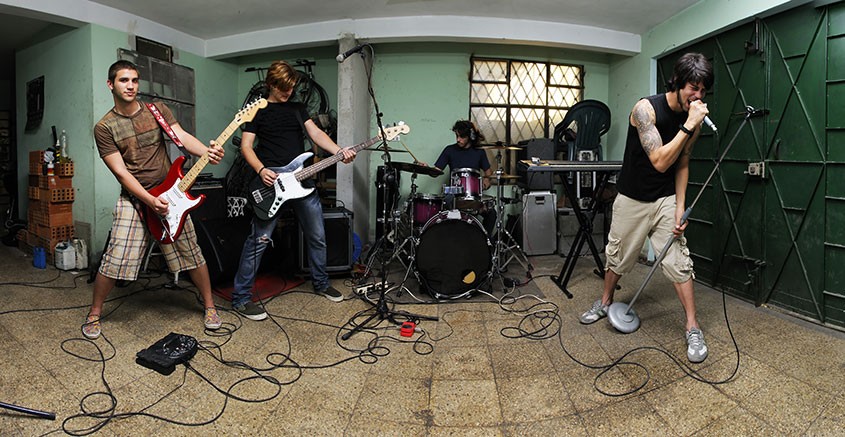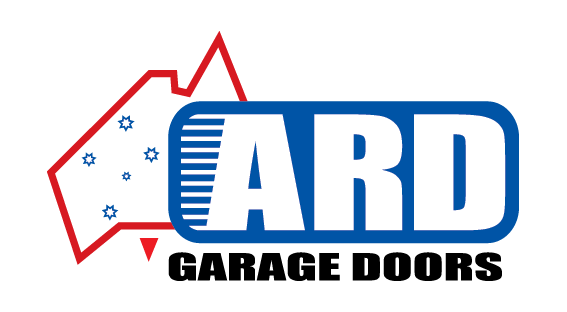Latest Posts
How To Easily Turn Your Garage Into The Perfect Band Rehearsal Space

For starters, the acoustics are dreadful. You'll find it impossible to hear yourself speak, let alone play from the reverb generated, and unless you live in the middle of nowhere, you run the risk of incurring the wrath of your neighbours.
However, when funds are limited and professional rehearsal studios aren’t an option, sometimes your garage is the only place where you and your band can get together and rehearse.
If practicing in a garage is your preferred or only option, how can you make it a better place to play? Read on to discover our top tips for turning your garage into a great band rehearsal space.
Plan, plan, plan
While you may think that turning your garage into a rehearsal space is pretty straightforward, it always pays off to plan exactly how you're going to do it, and get your ideas and figures down on paper. Questions that will need to be answered include:
- How much space do you have available?
- How much cash can you invest?
- What is the purpose of your space; is it merely to practice in, or do you want to record as well?
Designing your space
If you've decided you'd like to invest in equipment to record your music, such as that available fromThe Audio Hunt, you'll need to consider the size of the room you have available. If you poorly design your space, you may not be able to fit in all the necessary equipment and your band too.
Create a floor plan of your garage by:
- Assessing the space and the shape of the garage.
- Deciding what equipment you'll need and how it needs to be arranged.
- Determining the number of power sockets needed.
- Assessing ventilation and lighting needs.
You'll also need to consider the proximity of your neighbours to determine the level of soundproofing needed.
Calculate the costs involved
Turning your garage into a rehearsal space isn’t going to be cheap, and there will be some hidden costs that you may not even have considered. You may need to drywall the walls, level the floor, install suitable flooring, or finish off the space with lighting, furniture, and perhaps some heating or cooling equipment too. And that's all before you even start on your equipment! When planning you have to be realistic about the budget you have available, and what you can reasonably achieve with that money.
Take the shape of your garage into consideration
The majority of garages are rectangular in shape, however if yours isn't perfectly rectangular or square you'll actually have an advantage, as music spreads throughout irregular spaces more easily, and acoustics are generally improved.
Invest in soundproofing
One of the biggest issues involved when playing in a garage is the amount of noise you're going to create. And it's not just a simple case of sticking egg cartons to the walls, as some people would have you believe. You need proper soundproofing!
To soundproof effectively you should consider two things; absorption and insulation.
Sound waves lose their energy when they come into contact with absorbent materials such as walls, floors and ceilings, as this means that the sound is not reflected back into the room. Therefore, it makes sense to add materials that will absorb the sound in your garage.
Depending on the amount of space and money you have available, this may involve building a 'room within a room', and using drywall for both insulation and absorption of sound. However, you can also get a similar effect by using items which will absorb the sound such as:
- Wall hangings, curtains and drapery.
- Rugs.
- Couches and other furniture.
You'll also need to add insulation if you plan to spend long periods of time in there. Consider what places air will escape, such as through gaps around and under the garage door or windows, and remember that sound will escape through these areas too.
Ensure you have adequate ventilation
You'll need to have adequate air movement throughout the garage, not only for your own health, but also to prevent a buildup of moisture which could potentially damage your equipment. If you have windows in your garage, you may want to find some way to cover them, particularly if you're planning to record in there, as external sound can travel through windows and end up on the recording.
Result: a dry, comfortable place to rehearse where you won't annoy the neighbours
One final point to bear in mind is if you rent the property rather than own it yourself, you will need your landlord's permission to do any kind of alterations - it may be against the terms of your tenancy agreement to play music in your garage anyway.
But if you're good to go, follow our steps and you'll end up with a warm, comfortable place to rehearse, so that your music career isn't cut short before you've had time to make it big!
